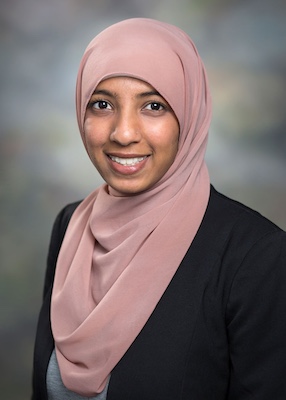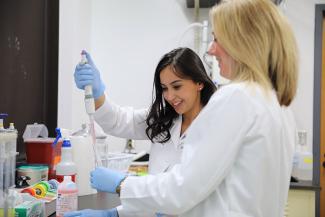Programs
The Graduate School of Biomedical Sciences at UT Health San Antonio offers 21 academic programs in the biomedical sciences. Located in the heart of the South Texas Medical Center, our university is next to 5 medically related institutions, more than 45 clinics, 12 major hospitals, one higher education institution, and countless small practices, offices, and non-medical businesses.
We offer certifications, bachelor's, master's and doctoral allied health programs. In addition to classroom lectures, our programs offer clinical training opportunities in a variety of settings to ensure our students have exposure to a multitude of professional opportunities.
Teaching the Art of Science
At the Graduate School of Biomedical Sciences at UT Health San Antonio, we are passionate about teaching the Art of Science. We not only train future scientists, we also equip students with the tools to better understand how to solve the challenges of tomorrow.

Sadiya AhmadPatient care is important in making lives better today, but to improve medicine as a whole, we need innovation - that is where sciences comes in. Science is progress and without it, medicine would be stagnant.
350+
Faculty members are working on cutting-edge research
7th
San Antonio is the 7th largest city in the United States.
6th
UT Health San Antonio is ranked 6th in Texas for NIH funding.
